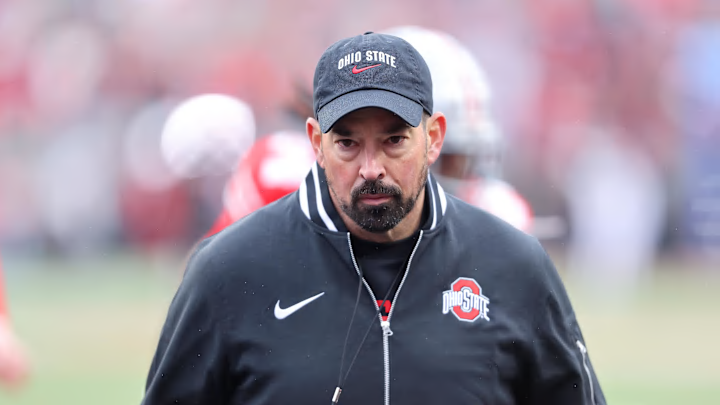In the lead-up to the annual Ohio State football vs. Michigan showdown, Ryan Day's recent interview on Game Time with Ryan Day on 10TV and Bally Sports Ohio offered a rare and raw glimpse into the emotional stakes that come with leading the Buckeyes in one of college football’s most storied rivalries.
For Ohio State, "The Game" is more than just a football contest—it’s a cultural cornerstone that defines seasons, legacies, and careers. While Ohio State fans have come to expect a relentless dedication to beating Michigan, Day’s candid remarks took this expectation to an even deeper, personal level.
When asked about the importance of the rivalry and how the program prepares year-round to face Michigan, Day made it clear that his entire approach revolves around this game. He spoke about honoring the traditions set by legendary Ohio State coaches like Woody Hayes and Urban Meyer, emphasizing that "we live it every day." For Day, everything the program does—every decision, every practice, every strategy—is filtered through the lens of this one game.
But the most striking part of the interview came when Day opened up about the personal toll of losing to Michigan. Reflecting on the back-to-back-to-back defeats from 2021 to 2023, Day confessed, "We felt what it's like to not win this game, and it's bad. It's one of the worst things that's happened to me in my life. You know, quite honestly, other than losing my father and a few other things... for my family, the worst thing that's happened."
For a head coach to say that losing to Michigan is one of the worst things of his life is a powerful statement. It shows the depth of his investment in the rivalry and how much he understands the stakes—not just for himself, but for the program, the players, and the fans. Day's transparency also puts into perspective the immense pressure that comes with being the head coach at Ohio State, where a single game can determine success or failure in the eyes of many.
Fans, especially those who have lived through years of domination over Michigan, may find comfort in Day’s remarks. His acknowledgment that losing to Michigan is one of the worst things he’s experienced assures fans that he takes this rivalry as seriously as they do. In a sense, this is what Ohio State fans want in their coach: someone who not only understands the magnitude of the rivalry but feels it in his bones.
However, Day’s comments also raise questions about the emotional weight he’s carrying. The rivalry with Michigan has always been intense, but for Day to liken a loss to personal tragedies like losing his father highlights just how deeply these defeats cut.
While fans expect unwavering commitment from their coach, it’s important to consider whether the intensity of their reactions is contributing to what Day described as one of the worst experiences of his life. In the age of social media, criticism can be fierce and unforgiving, especially after a loss to Michigan.
Day has faced calls for his job and harsh judgments from fans and media alike. It’s a reminder that, behind the game, coaches and players are human beings who bear the brunt of these losses in more ways than fans might realize.
This is not to say that fans shouldn’t care deeply about the rivalry. Ohio State’s passionate fanbase is part of what makes college football special, and the standard of excellence is what drives the program to compete at the highest level.
But Day’s vulnerability in sharing how much losing to Michigan affects him and his family should prompt a bit more empathy from those watching. As much as the rivalry is about fierce competition, it’s also a reflection of the emotional toll that comes with it, especially for those in leadership roles.
At the same time, the truth remains: the biggest remedy for Day’s turmoil is to win The Game. Nothing will silence the criticism or ease the burden more than coming out on top against Michigan. The pressure is part of the job, and as much as fans might be encouraged to show empathy, Day himself knows that the quickest way to end this emotional spiral is to lead the Buckeyes to victory. Winning the game would restore not only his own peace of mind but also the faith of the Ohio State faithful.
Ultimately, while empathy from the fans can help, the rivalry demands results. Day understands that, and his comments reveal how far he’s willing to go to avoid another devastating loss. His personal stakes are high—but they mirror those of the fans.
As Ohio State prepares for its next clash with Michigan, both Day and the fans know that, at the end of the day, one thing will ease all the tension: a win.
